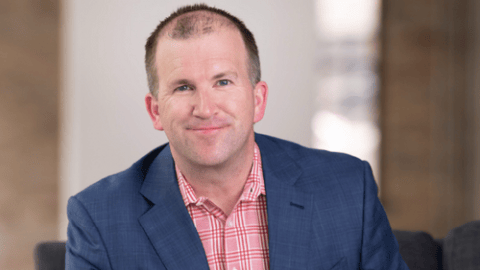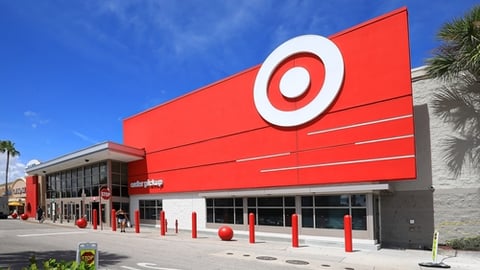What's Next for Target? An Expert's Take on the Retailer's Future
Perhaps no retailer in America in recent years has been watched as closely as Target. Other national retailers, such as Walmart, Amazon, and Costco, to name a few, have successfully navigated the choppy waters of retail to continue growing sales while also expanding their respective customer bases.
But the story at Target has been much different. While the retailer has continued to push the envelope with new product launches and the continued expansion of its robust private-label assortment, the response from shoppers has been lackluster.
When the Minneapolis-based retailer recently announced a 0.9% decrease in second-quarter sales, it also revealed that its Chief Operating Officer, Michael Fiddelke, would take over as CEO in February, replacing Brian Cornell.
So, what’s next for Target? What issues does the retailer have to address? And was promoting Fiddelke the right move? Dr. Steven Stovall, associate professor of Management and Entrepreneurship at Southeast Missouri State University, spoke with Store Brands and offered his insight on what the future may hold for one of America’s largest retailers.
STORE BRANDS: Did Target’s decision to promote someone internally versus hiring someone from the outside surprise you?
STEVEN STOVALL: It was a surprise to me, given all the things Target has challenged itself with, a lot of which was brought on internally. I really thought they would bring somebody from the outside. Fiddelke has been with Target for 20 years, and I guess if you rationalize it, you could say no one knows this company better. He worked in just about every function inside Target. And it’s interesting because Brian (Cornell) was an outsider, and he brought a lot of fresh ideas with him. I thought that was going to happen again this time.
SB: We won’t know if this was the correct decision until a few years down the road. That said, do you feel Target would have been better off bringing in a fresh voice given the challenges the company faces?
SS: Will Fiddelke perpetuate what has always been done because of his tenure with the company and his familiarity with Target? We’re going to see what he brings to the table. Sometimes, there are people working in the shadows of companies that have fantastic ideas and things they would like to try, but just haven’t had an opportunity to put those ideas forward. But we’re going to have to wait at least four quarters to see how he performs.
SB: While the past five years have been a tumultuous time for retailers, many have had success managing through a host of issues. But Target has struggled. Why?
SS: For many years, Target’s strategy was to be the content follower to Walmart. I think they were OK being No. 2, but Amazon has increased its business, and Walmart and Amazon combined are well ahead of Target. Some of their issues have been self-inflicted, from merchandise design for a small segment of the population to the decision to pull back on DEI initiatives. These decisions turned off certain segments of the population, and it was almost as if they couldn’t win.
SB: The front-of-the-store issues have grabbed the headlines. But what other issues are they dealing with behind the scenes?
SS: While the supply chain has improved since the pandemic, Target is having staffing issues, and they can’t get products from pallets to shelves. If consumers walk into the store and see empty shelves or pallets that haven’t been unloaded, that is a big issue as well.
SB: Is staffing a Target issue or a bigger issue facing the retail industry as a whole?
SS: I’m a co-owner of a chain of coffee shops in Missouri, and right now we’re having difficulties finding quality people and keeping them. I can't tell you how many times in the past few weeks, we hired somebody, and they only worked for a couple of days, and then told us they didn't realize they were actually going to have to work. And we pay above minimum wage. I think Target's facing the exact same issue. How do they attract talent, and then how do you hang on to them?
SB: Is Target’s store pickup service having a negative impact on its business?
SS: I have said that since the retailers started doing pickup, that they’re missing out on the impulse purchases because if you're going to do pick up, you make your list, you enter that in, and those are your purchases. You're missing out on those things that suddenly catch a kid's eye or your eye, and adding that to your cart. That doesn’t happen with pickup orders.
SB: As Target moves ahead, what should we be watching?
SS: Fiddelke doesn’t take over until February, and that shows Target doesn’t see this as a crisis situation, otherwise they would have removed Cornell immediately. If they had hired someone from outside the company, I think investors would have given Target some extra time. When he starts, Fiddelke will have to hit the ground running. There is no learning curve for him and he should already have ideas that need to be implemented. He also needs to be putting together the team that will help implement the changes he will want to make.




